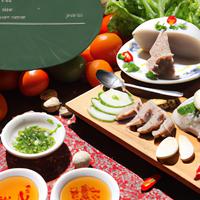
1 serving (37 grams) contains 70 calories, 3.0 grams of protein, 2.0 grams of fat, and 10.0 grams of carbohydrates.

Log this food in SnapCalorie

Nutrition Information
Calories |
448.7 | ||
|---|---|---|---|
% Daily Value* |
|||
| Total Fat | 12.8 g | 16% | |
| Saturated Fat | 3.2 g | 16% | |
| Polyunsaturated Fat | 0 g | ||
| Cholesterol | 32.1 mg | 10% | |
| Sodium | 961.5 mg | 41% | |
| Total Carbohydrates | 64.1 g | 23% | |
| Dietary Fiber | 3.2 g | 11% | |
| Sugars | 6.4 g | ||
| protein | 19.2 g | 38% | |
| Vitamin D | 0 mcg | 0% | |
| Calcium | 32.1 mg | 2% | |
| Iron | 1.9 mg | 10% | |
| Potassium | 192.3 mg | 4% | |
* Percent Daily Values are based on a 2,000 calorie diet. Your daily values may be higher or lower depending on your calorie needs.
Food Attributes
Source of Calories
About Ha gau
Ha Gau, also known as shrimp dumplings, is a staple of Cantonese dim sum. These bite-sized delights feature a translucent, slightly chewy wrapper made with wheat starch and tapioca flour, encasing a savory filling of minced shrimp, pork fat, and subtle seasonings like sesame oil and white pepper. Known for their signature pleated shape, Ha Gau offers a delicate balance of texture and flavor. Originating in Guangdong, China, they are often steamed and served alongside other dim sum favorites. While shrimp provides a good source of protein and essential nutrients like selenium and vitamin B12, Ha Gau can be high in sodium and contain added fat depending on preparation. Additionally, the starchy wrapper contributes refined carbohydrates. As they are typically handmade, their nutrient profile can vary, making portion control essential for enjoying this delicious treat as part of a balanced diet.



